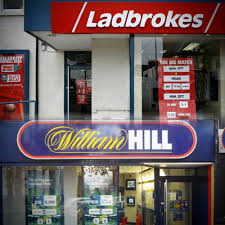Fixed-odds betting terminals in danger in the UK
The United Kingdom is the biggest betting market in the world and it is home to some of the largest operators in the industry. The government recently tried to eliminate fixed-odds betting terminals from public buildings in the country but failed to take immediate action.
 Now, shares of the top bookmakers in the UK went down after sports betting didn’t get a lot of support on Wednesday night, when the debate in the House of Commons took place. Ed Miliband, the leader of the Labour party, stated back in December last year that he plans on giving local councils more control when it comes to the number of betting shops available in their jurisdictions, if he gets elected. He also aims to reduce the total number of FOBTs that can be held in each shop, which is now limited to a maximum of four.
Now, shares of the top bookmakers in the UK went down after sports betting didn’t get a lot of support on Wednesday night, when the debate in the House of Commons took place. Ed Miliband, the leader of the Labour party, stated back in December last year that he plans on giving local councils more control when it comes to the number of betting shops available in their jurisdictions, if he gets elected. He also aims to reduce the total number of FOBTs that can be held in each shop, which is now limited to a maximum of four.
During the debate on Wednesday, David Cameron – the Prime Minister – said that he and the Tory Party share the same concerns that Miliband has regarding the impact of these betting terminals. He went on to say that no action should be taken before the Department for Culture, Media and Sport is done with the FOBT data review. The initial data should come out this fall and will help determine the future of the betting terminals in the United Kingdom.
Shares drop for top bookmakers
Until then, shares continue to drop for the top bookmakers that operate these terminals in anticipation for the government cracking down. Cameron also mentioned on Wednesday that it was the Labour party that relaxed the gambling regulations in 2001, allowing FOBTs to spread quite freely throughout the country. Tony Blair was running the party back then but more politicians attacked the points made by Miliband, calling them a way to “score cheap political points”.
 The main selling point for Labour is that they plan on allowing local councils more control in their areas if it gets elected and this can result in different regulations for betting terminals in different jurisdictions, but will more than likely see a decrease in the total number of FOBTs. There was even a vote to double the time between spins on the machines but the majority ruled against this change, 314 to 232.
The main selling point for Labour is that they plan on allowing local councils more control in their areas if it gets elected and this can result in different regulations for betting terminals in different jurisdictions, but will more than likely see a decrease in the total number of FOBTs. There was even a vote to double the time between spins on the machines but the majority ruled against this change, 314 to 232.
As soon as the stock market opened on Thursday, the big bookies like Ladbrokes and William Hill were severely bleeding, with their shares going down 6.5% and 7% by the time the day closed.
More concerns for high street bookies
Most analysts predict that no legislative action will take place on FOBTs this year but the negative press determined Barclays to downgrade the outlooks on the two firms and this will continue to see their shares drop. Ladbrokes has been struggling in the online segment recently and this means that it heavily relies on the revenue from FOBTs, so it is affected by the bad news the most.
While the extent of action taken against FOBTs is not yet certain, it will not be good for the high street bookies and they have little time to prepare for the storm that is coming.
Ladbrokes, William Hill, Paddy Power, Betfred and Coral all had representatives at the meeting held last month with gambling minister Helen Grant and they were told to take measures in order to reduce the harm for gamblers. Some of the top suggestions were to allow the players to set limits on the time and money lost.
Overall, the gambling operators said that they are willing to talk to government representatives in order to find the best harm reduction measures and that these should be based on actual facts and research.


